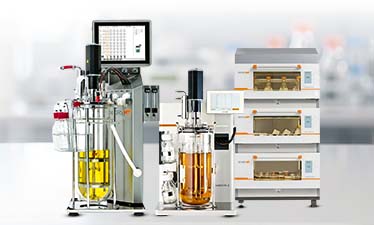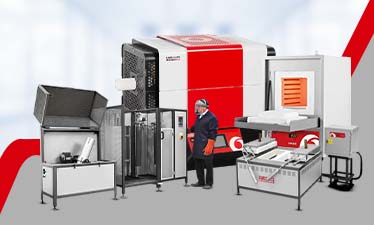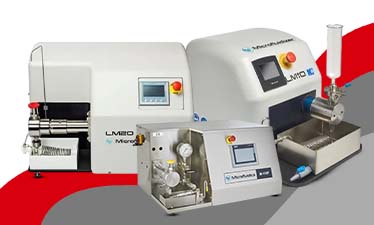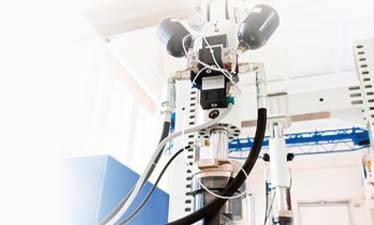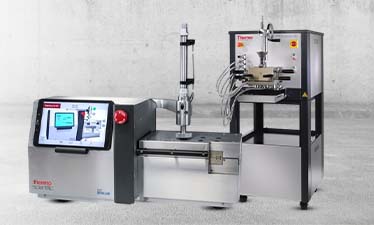Compact Polymer Extrusion with Thermo Scientific at ArabLab 2025
As many of you are aware, we are participating in the ArabLab exhibition this year from 23–25 September 2025 at the Dubai World Trade Centre. One of the prominent names that will be with us is Thermo Scientific, internationally recognised for its contribution to material testing and polymer development
At Stall H2-C70, we will showcase two standout systems from our trusted partner:
These platforms highlight how extrusion at laboratory scale can deliver insights that carry directly into pilot and production environments.
MiniLab 3: Data from Small Samples
The MiniLab 3 is more than a small plastic extrusion machine. With as little as 5 g of material, or 7 cm³, it provides meaningful rheological and extrusion data that supports faster formulation development. Its compact format makes it ideal for laboratories working with costly additives, specialty polymers, or medical materials.
Key strengths include:
- Co- and counter-rotating screws for flexibility in research design
- Integrated melt viscosity measurement using HAAKE PolySoft OS
- Circulation or extrusion modes via automatic bypass
- Local tablet control for intuitive operation
- Easy cleaning through split barrel exit
This twin screw compounder connects directly to wider industry trends. The global twin screw extruders market, valued at about USD 3 billion in 2024, is projected to grow at 5.3% CAGR to nearly USD 4.76 billion by 2033.
In this, co-rotating twin screw systems dominate with 71% share, thanks to their superior mixing and degassing capabilities. With the MiniLab 3, researchers can work with the same screw technology on a smaller scale, preparing polymer blends and additives for applications such as polypropylene extrusion machine trials, compounding masterbatches, or medical formulations.
Rheomex QC: Simulating Processes
The Rheomex QC extruders extend capability beyond low-volume testing. As part of the HAAKE PolyLab QC torque rheometer platform, they enable analysis of processing and rheological behaviour while requiring only reduced material amounts.
These polymer extrusion machines recreate industrial conditions, making them effective for both research and scale-up projects. They are particularly valuable in generating samples for a wide range of testing environments.
Key applications include:
- Manufacturing strands, foils, films, or pellets for optical and mechanical testing
- Producing samples for outdoor exposure and durability studies
- Generating homogeneous melts for plastic profile extruders
- Evaluating stabilisers, pigments, and functional additives in polymer blends
- Supporting studies related to rubber compression moulding machine processes
The global extrusion equipment sector is projected at USD 6.09 billion in 2025, growing to USD 10.01 billion by 2035 at 5.1% CAGR. Single screw systems hold 62.7% share, supported by their stable output in polymers like PP, LDPE, and PVC. The Rheomex QC enables researchers to reproduce this stability at laboratory scale while gathering data that feeds directly into industrial extrusion.
Safer Handling and Better Workflows
Thermo Scientific has built usability into both the MiniLab 3 and Rheomex QC systems to simplify daily handling.
- Mobile measuring sensors reduce the need to manage hot or heavy parts
- Integrated heating and cooling circuits lower connection errors
- Computer-controllable feeders and post-extrusion units improve reproducibility and documentation
- Inert gas flush systems in the MiniLab 3 support reactive extrusion and prevent contamination
Beyond extrusion, these systems also support rheology measurements and material characteristics testing, enabling researchers to gain deeper insights into polymer behavior and performance. These workflow-focused enhancements allow researchers to focus on outcomes instead of troubleshooting equipment. By reducing handling complexity, the systems make laboratory extrusion safer, more efficient, and more comprehensive in their analytical capabilities.
Scaling Extrusion from Bench to Industry
Polymer development must move beyond the lab to be commercially viable. The MiniLab 3 and Rheomex QC provide data that translates into pilot and production processes with confidence.
The global polymer market, valued at USD 793 billion in 2024, is forecast to reach USD 1341 billion by 2034 at 5.4% CAGR. The plastic compounding market is also set to rise from USD 73 billion in 2025 to USD 119 billion by 2032. Even niche areas such as pharmaceutical hot melt extrusion are growing, with USD 39 million projected in 2025 at 4.8% CAGR. These trends show how extrusion systems are central to films, pellets, and advanced blends that power high-performance applications.
What You Will See Live at ArabLab 2025
ArabLab 2025 will bring together the latest laboratory technologies under one roof. At Stall H2-C70, we will highlight how compact extrusion platforms can accelerate polymer innovation without compromising on data quality.
Visitors will see the HAAKE™ MiniLab 3 Micro Compounder and Rheomex QC Lab Single Screw Extruders in action, exploring their ability to turn grams of material into insights that scale to production.
Whether your focus is on polymer extrusion machines, developing plastic profile extruders, or refining polypropylene extrusion machine applications, these systems demonstrate how small-scale testing can directly support industrial decision-making.
Join us at the exhibit to experience extrusion technology designed for tomorrow’s materials.




